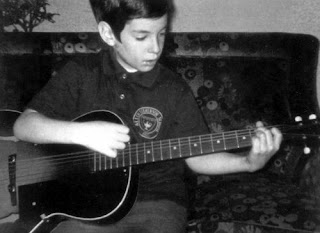Why Prog?
Generally speaking, fans of progressive rock tend to be fanatics in the true sense of the word—more so, I’d posit, than with just about any other musical genre out there. It typically becomes a key part of our identity and often fuels a surprising amount of activity and focus in our daily lives. Though many modern musicians, regardless of style, have at least some familiarity and appreciation for prog (in one form or another)—and, perhaps, there is an argument to be made for it sometimes being considered “musician’s music”—I think it’s important to remember that progressive rock once appealed to the masses. That may have been five decades in the past, but the foundation was laid for many of us with music that was actually popular in its time, played on the radio, and even reached significantly high numbers in the charts (back then).
Though I have a bit of a theory behind the genre’s effective banishment from the mainstream and its having mostly remained in exile from the masses until fairly recently, I’d prefer to leave that discussion for a different time. For now, however, I thought I’d try to expound upon some of the insights I’ve come upon as a progressive rocker (as listener, composer/musician, and one who has also worked in the capacity of putting on concerts and festivals):
Insight #1: Prog is likely the most all-encompassing musical genre
While there is certainly a broad variety of style and influence within the realms of older musical styles—especially classical and jazz—progressive rock initially flowed from the fusion of classical, (predominantly) British and European folk, and rock ‘n’ roll. Looking at these three components by themselves, it already set the stage for an enormous scope of influence and input. On top of this, jazz sensibilities quickly started to arise the mix. Over time, a significant number of other musical genres have found their way into progressive music as well—and, with few exceptions, they are generally greeted openly and with a positive spirit. I’d be hard pressed to think of any other genre that welcomes and promotes this “anything goes” ethos so intensely, where influences from just about any other source can be incorporated so freely and with such general acceptance.
Insight #2: Music that engages the mind and the heart
We come to music from different backgrounds and often listen from varied vantage points, so this one is definitely a bit more personal. Like many folks born in or before my time, I grew up with an appreciation for the art of simply listening to music (a practice that I believe became noticeably less prevalent in our society, especially here in the USA, from the early 1980s onward) and, at its best, listening was often a virtually all-encompassing experience that could easily approach a spiritual level. In this context, however, the music should be particularly engaging—and, akin to a good movie, the musical “story” should be just as compelling as its execution. Though prog does not always succeed in this area, its baseline philosophy and general approach lends itself to the creation of more sophisticated, intricate, and even sometimes challenging results. As a rule, it aspires to be music for deep listening and, thankfully, often succeeds in this area of inspiration, both in the realms of brains and beauty.
Insight #3: An epitome of inclusion and diversity in its people (in addition to its music)
In spite of progressive rock’s origins being primarily based in the UK and USA, it quickly grew to be an international phenomenon (much more so than the average person seems to realize). Musicians from all over the world have come to work in the genre and most major prog festivals include several international acts. (As a more extreme example, when I played with Mirthrandir at Baja Prog in 2006, we were the only true American band out of 21 acts in total.) Using Greg Walker’s Syn-Phonic catalog as a quick and dirty reference, since its “Progressive Music” CD catalog is separated by country, I see the music separated into 70 pages (each page representing a different country of origin). Additionally, I find the fanbase equally diverse, both geographically and in terms of backgrounds. There’s a broad international community of musicians, fans, and promoters—and it’s both a pleasure and honor to have lived within this family for a good portion of my life.
Though I feel as though I’ve just started to scratch the surface here, this seems like a good point to stop (or at least pause). I’d love to hear your thoughts on the subject, along with other similar insights you may have. Thanks a lot for reading!



Comments
Post a Comment